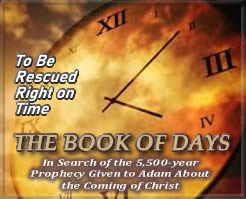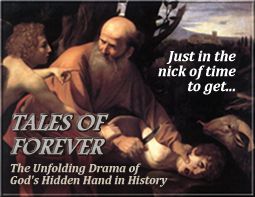Between Certainty and Doubt
Because Free Will Can’t Seem to Make Up its Mind
Every day, we’re faced with a dizzying array of choices, most of which we resolve unconsciously rather than consciously. We do this either out of necessity or conditioning, but rarely do we consciously pause to consider choosing a different resolution along life’s path. Among the factors that shape our decisions is our worldview, which is guided by our hopes and fears, our doubts and certainties, our expectations and disappointments. And among the various worldviews held by humans, the one we’re most concerned with in this work is how our unique perspective of a Supreme Being inevitably shapes the world we live in.
Do you believe or disbelieve in a God? Do you believe that God is interested or disinterested in the lives of humans? Do you believe that God is capable or incapable of governing humanity in a perfect manner? Do you believe that God is so far above and beyond us that He can’t relate to us on a personal level? Or do you believe that God can relate to us on a personal level despite His transcendence?
Then again, maybe, if you’re like most humans, you’d admit that at various times throughout your life, you’ve maintained any or all of the previous worldviews. Again, whether you’ve done this consciously or unconsciously isn’t the issue. What’s important is, the God of The Bible—Who we’re most concerned with here—understands all too well how this may be the case, and yet condemns no one for shifting from one perspective to another.
Story Continues Below
Says Richard Price—the founder and CEO of Academia.edu—on his podcast In Depth With Academia:
Conquering the Joy of Cynicism and the Death of Beauty: How Your Worldview Shapes the World You Live In is:
To hear Price’s book review of Conquering the Joy of Cynicism and the Death of Beauty, CLICK HERE.
To hear Kent and Zen Garcia continue their discussion concerning the implications of the 5,500-year chronology from Adam to Christ as it pertains to the faithfulness of God, CLICK BELOW.
Story Continues From Above
Now at this point I imagine that some folks who believe in The Bible might be thinking: Excuse me, where does it say that God doesn’t condemn anyone for unbelief? Well, you have heard of Elijah, the prophet, haven’t you? One minute he was bravely defying Jezebel and the priests of Baal, by miraculously calling down fire from Heaven, but no sooner had he pulled off the miracle of the century than he did a complete about-face:
So Jezebel sent a messenger to Elijah, saying, “May the gods deal with me, and ever so severely, if by this time tomorrow I don’t make your life like those you killed!” And Elijah was afraid and ran for his life. When he came to Beersheba in Judah, he left his servant there, while he himself traveled a day’s journey into the wilderness. He sat down under a broom tree and prayed that he might die. “I’ve had enough, Lord,” he said. “Take my life, for I’m no better than my fathers.”
The First Book of Kings
Now does that sound like the same guy who worked in concert with the Lord God of Israel in calling forth fire from Heaven?







